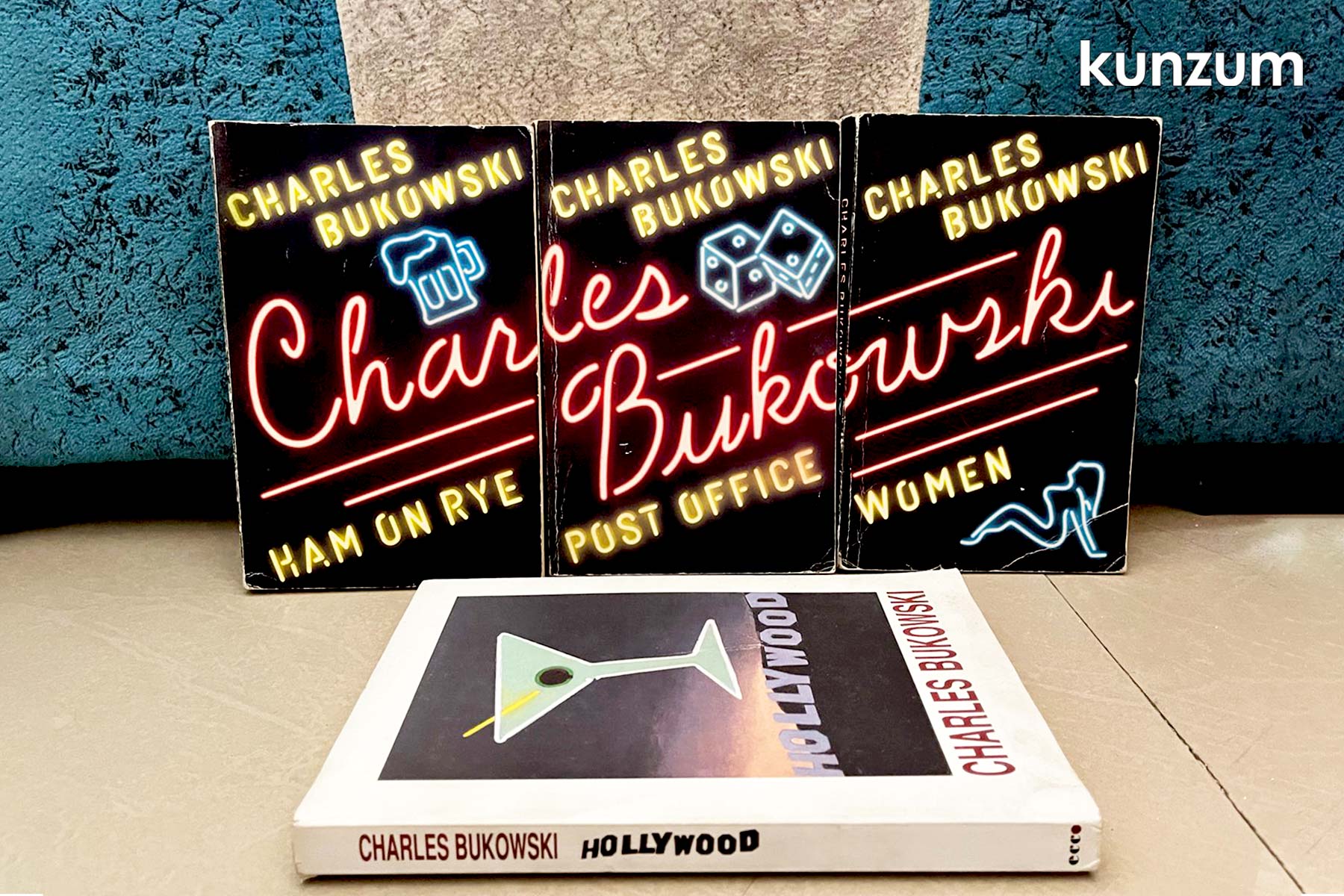
In my work as a writer, I only photograph what I see.
– Charles Bukowski
He loses all his bar fights, loses out on most of his gambles, all his women too, including Jane, the only woman he loved who died of too much drinking. At the core of his heart Bukowski is just a lover gone wrong. He can’t be saved from his misery, that’s what’s relatable. A man who just fails, fails, and fails again, without ever learning.
Reading Bukowski is like meeting a funny old man at the bar with bruises on his face who invites you to drink and over a couple of those, he tells you these really brilliantly funny tales of his life and antics.
Bukowski had a miserable childhood—poverty, parents that didn’t let him play with other kids or do anything he wanted to. Then during his teenage years, he developed boils, and acne all over his face and body. He was an outcast, lonely, ugly, and poor.
There was nowhere to turn to, until Bukowski discovered the doors of the LA Public Library. Here, he spent hours reading, borrowing his favorite books to read at home. Under his quilt, he lit a lamp and devoured all those books. His favorites were Dostoevsky, Celine, Knut Hamsun, and most of all John Fante who Bukowski famously called his God.
Bukowski wasn’t famously published until he was at least 50, till then he held a series of low paying jobs especially a 20-year-long stint working at the Post Office, which inspired his first novel. On the surface, Bukowski seems a depressed dude, a misanthrope, a misogynist, and a loser but he is more—he is a great humanist, an incredible humorist and all of his writing exhibits a special voice that isn’t imitable at all. Bukowski became famous for he talked of normal problems of ordinary people; things so relatable that it was hard not to say—oh yeah that totally happened to me.
Time called Bukowski a “laureate of American lowlife”. Regarding his immortal appeal The New Yorker wrote, “he combines the confessional poet’s promise of intimacy with the larger-than-life aplomb of a pulp-fiction hero”.
Sincere, and uncompromisingly honest, Bukowski became the literal God of dirty realism, and transgressive fiction. Imitated by many, surpassed by none, loved by many, and hated by even more, Bukowski bares the core of one’s being, delves into layers of characters never touched upon in literature before. He writes simply, with a gigantic misanthropy, no one is free from his hate not even he himself, but underneath all his misanthropy lies a great humanism that is delivered hilariously.
Welcome to the dirty life and times of Charles Bukowski.
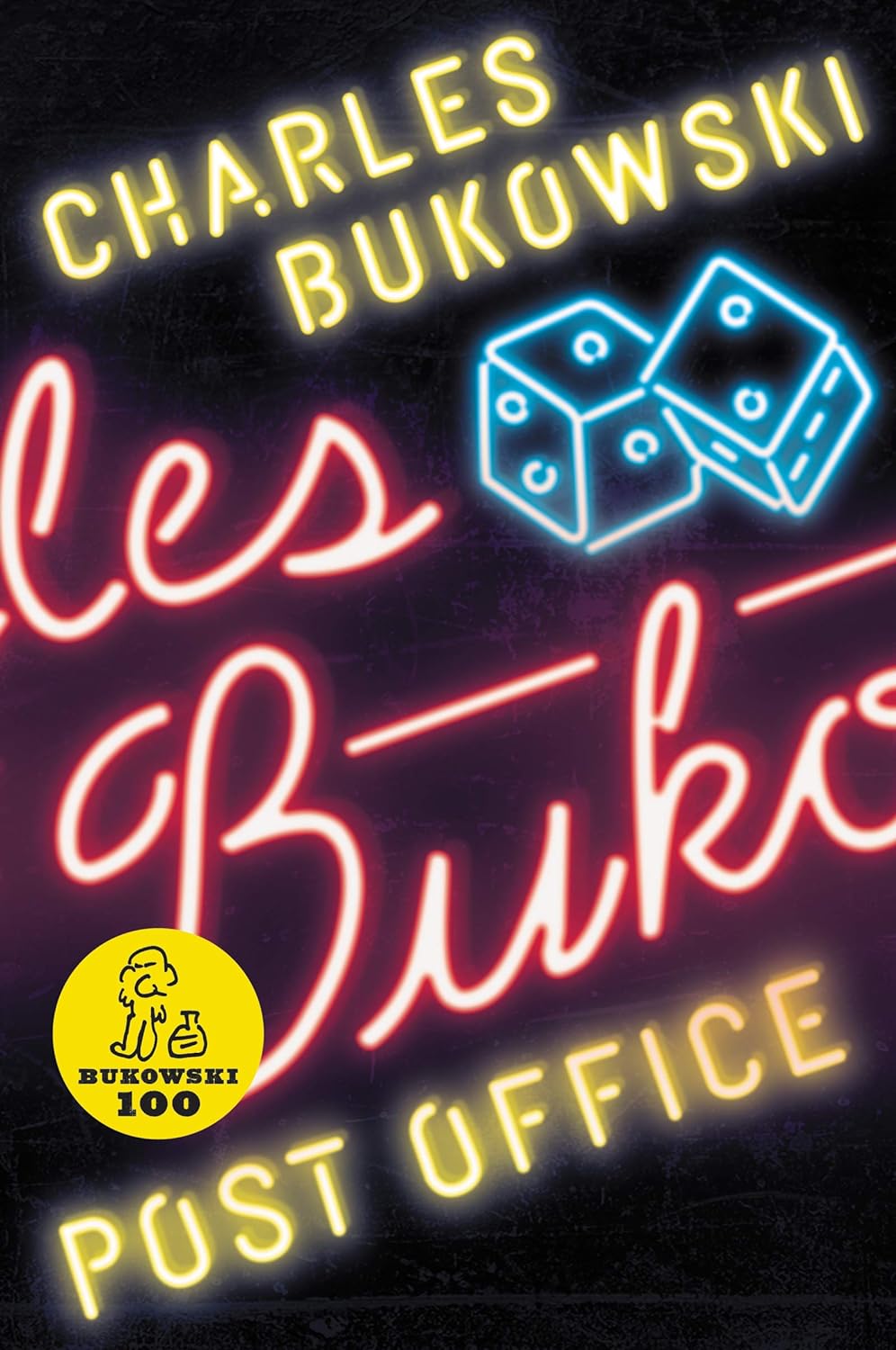
Post Office
Any damn fool can beg up some kind of job; it takes a wise man to make it without working.
Bukowski’s writing was deemed unpublishable by all the major presses of his time until John Martin, founder of Black Sparrow became a pusher of Bukowski’s work. Martin published several of Bukowski’s short stories and poems, and then one day when Bukowski was old and hungover, Martin told him to write a novel, or more specifically to quit his job to write a novel.
Martin gave Bukowski a hundred dollars a month to fund his living and drinking expenses. By the end of that month, Post Office was made—Bukowski’s first novel that chronicles his time working at the Post Office—the drudgery of work, the meaningless toil of all labor, futility of our human condition, drunken mishaps. Bukowski’s most truthful tale is a story relatable to anybody who has ever hated his job, their days, or their life in general.
This is Bukowski’s mostly true story of twenty years, written in 21 days.
As he explained in a letter at the time, “I have one of two choices – stay in the post office and go crazy … or stay out here and play at writer and starve. I have decided to starve.“
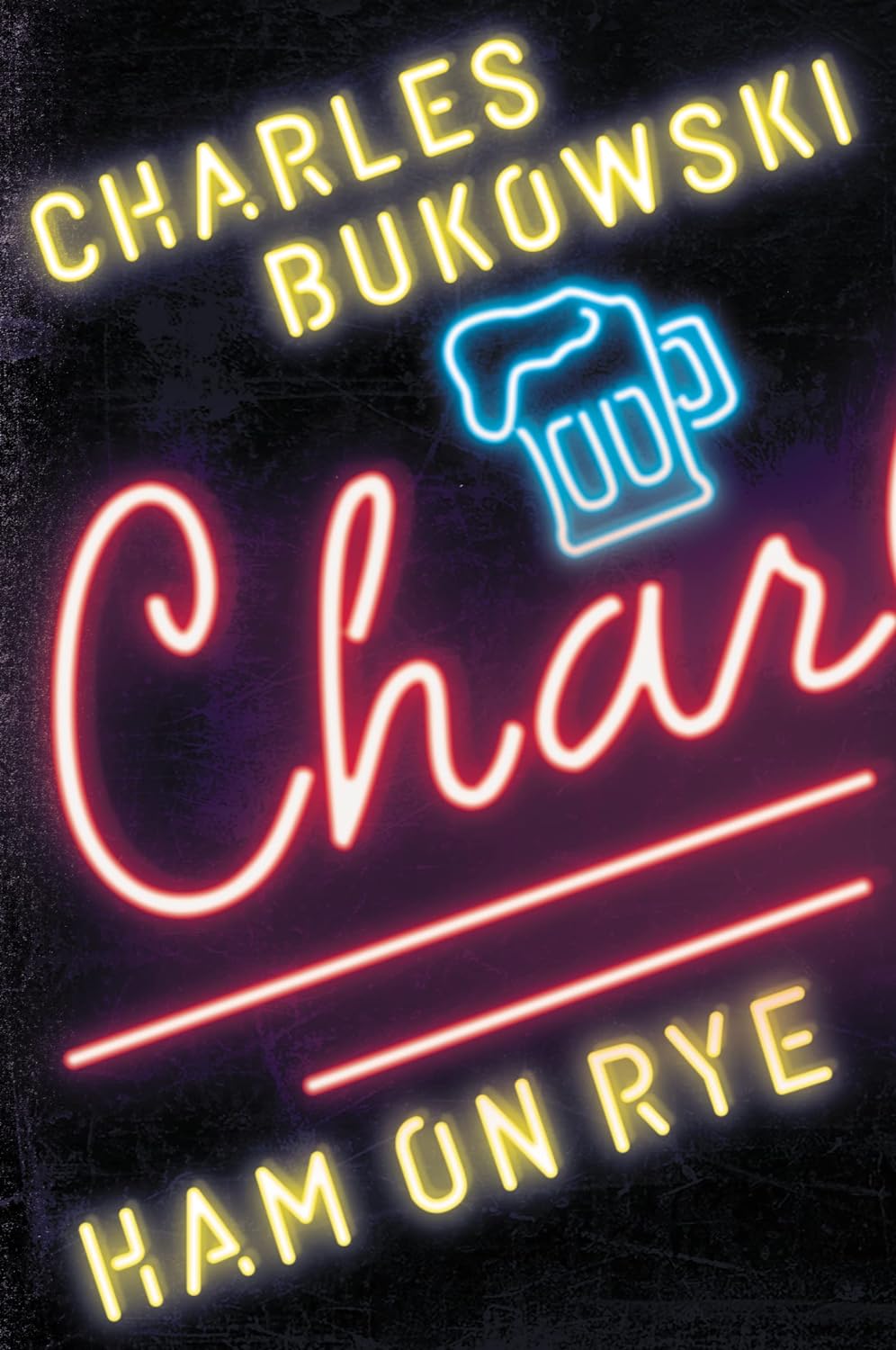
Ham on Rye
I guess the only time most people think about injustice is when it happens to them.
The most melancholic of Bukowski’s oeuvre, this is Bukowski at his most vulnerable, realest self. Ham on Rye chronicles Bukowski’s troublesome childhood, abusive father, silent mother, his lack of confidence heightened by an extreme case of acne that covered all of his face and body in boils.
From the age of six to eleven, Bukowski’s father beat him with a razor strap three times a week for the most mundane reasons. Bukowski said this made him understand undeserved pain. He said this helped his writing. Bukowski turned his childhood devastation into Ham on Rye.
Throughout his teenage, Bukowski’s alter-ego Chinaski in Ham on Rye had no friends, his family hated him, and strangers found him so ugly they looked away when they saw him. This is the chronicle defining how the lonely, miserable boy turned into a dirty old man. The coming-of-age of Henry Chinaski is funny on every page, as it is sad and melancholic. The title was probably borrowed off of Salinger’s Catcher in the Rye. This story of his coming-of-age, that Bukowski titled after the staple American breakfast for he believed this everyday normalcy was what destroyed a man.
Ham on Rye is actually a poignant story of how a soft boy became a hard man. It is so sad yet Bukowski never suffers from any self-pity, he just says— it happens, so be it. Dark and gritty like all things real and true, this is Bukowski’s true Magnum Opus.
Bukowski dedicated Ham on Rye to fathers.

Women
From Barry Miles introduction to Women—
Charles Bukowski was the poet of Los Angeles. Not the LA of ranch homes in the Hollywood Hills with the breathtaking views of the glittering chequerboard of lights, the swimming pools, palm trees and sports cars lined up in the drive, but the LA of tarnished dreams, of dead-end jobs, of hookers and workers in the sex industry, of beaten down, damaged, dysfunctional people. His people.
Written by the aid of three bottles of white wine every night—Women is considered a Bukowski staple—it is famous and infamous for his multiple affairs and many encounters with prostitutes. It is famously said that Bukowski drank whiskey, loved women, then went to night dens looking for prostitutes, in that order. This book is filled with all the cliches that have made him famous, but behind all the misanthropy, and cold heartedness lies a man who is ultimately a lover.
Bukowski’s Women is full of sex, whiskey, depression, and debauchery. All kinds of excesses dominate the story but towards the end lies a haunting chronicle of a man who is ultimately moved. Men and women can’t be without each other even in Bukowski’s whiskey raging battle of sexes. Ultimately it is a story of truth, if not a true story.
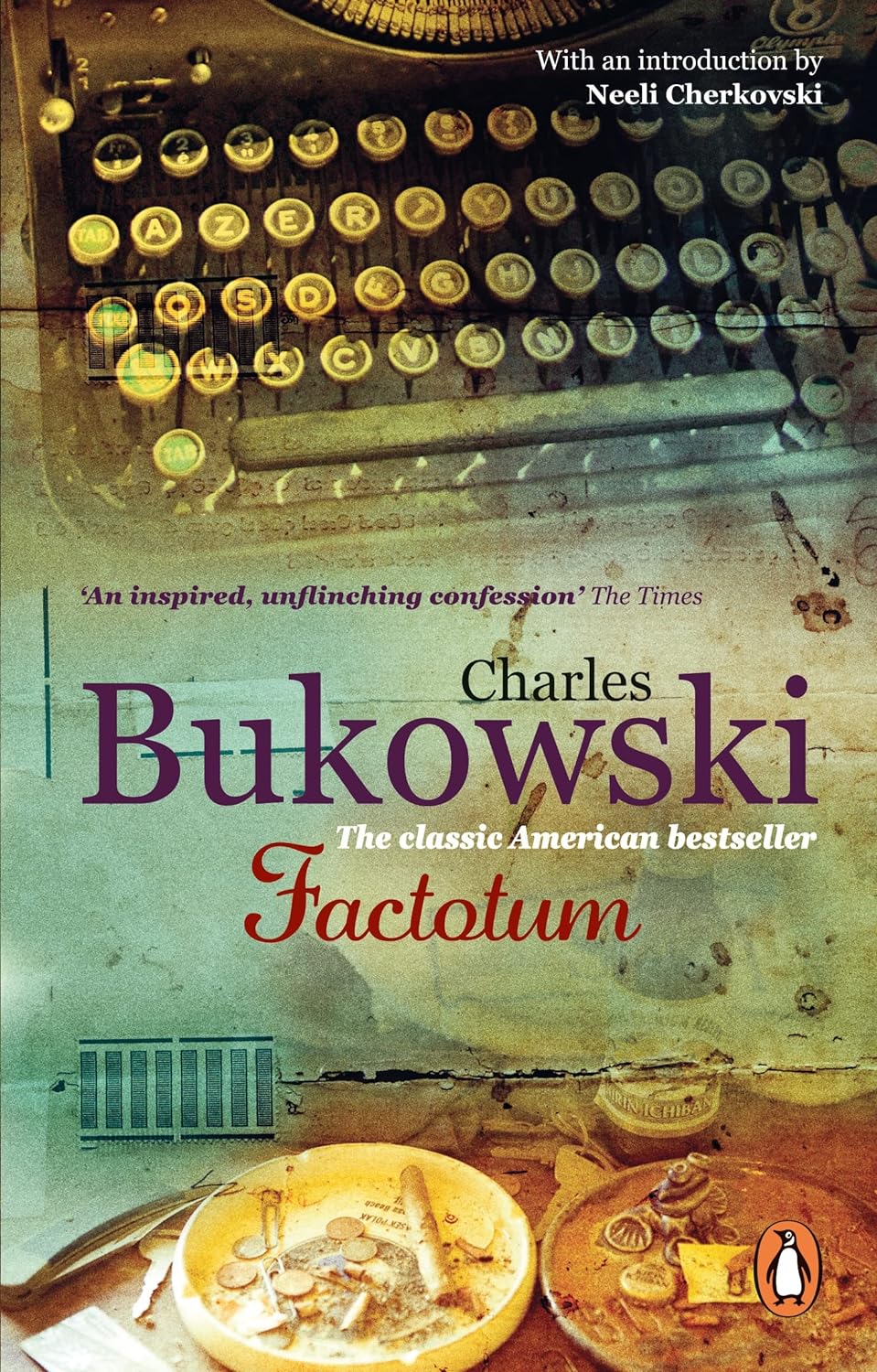
Factotum
Factotum refers to a man who does odd jobs, which Bukowski’s novels and life were full of. In Factotum, Bukowski spends his time doing odd jobs, finding them, working them, then ultimately quitting them. He is either drunk or hungover, nothing else. Also, it is in this work he tells of Jane—his lover who died who he loved forever. Jane, and Bukowski were mad lovers and madder alcoholics, they were drunken Bonnie and Clyde who never ever would have parted had she not died.
One man, doing the same thing day in and day out, this is the drudgery of existence, Bukowski is a rebel with no cause, he just says life sucks, he has no answer but you cannot disagree with him when he says it sucks for sometimes it just kind of does.
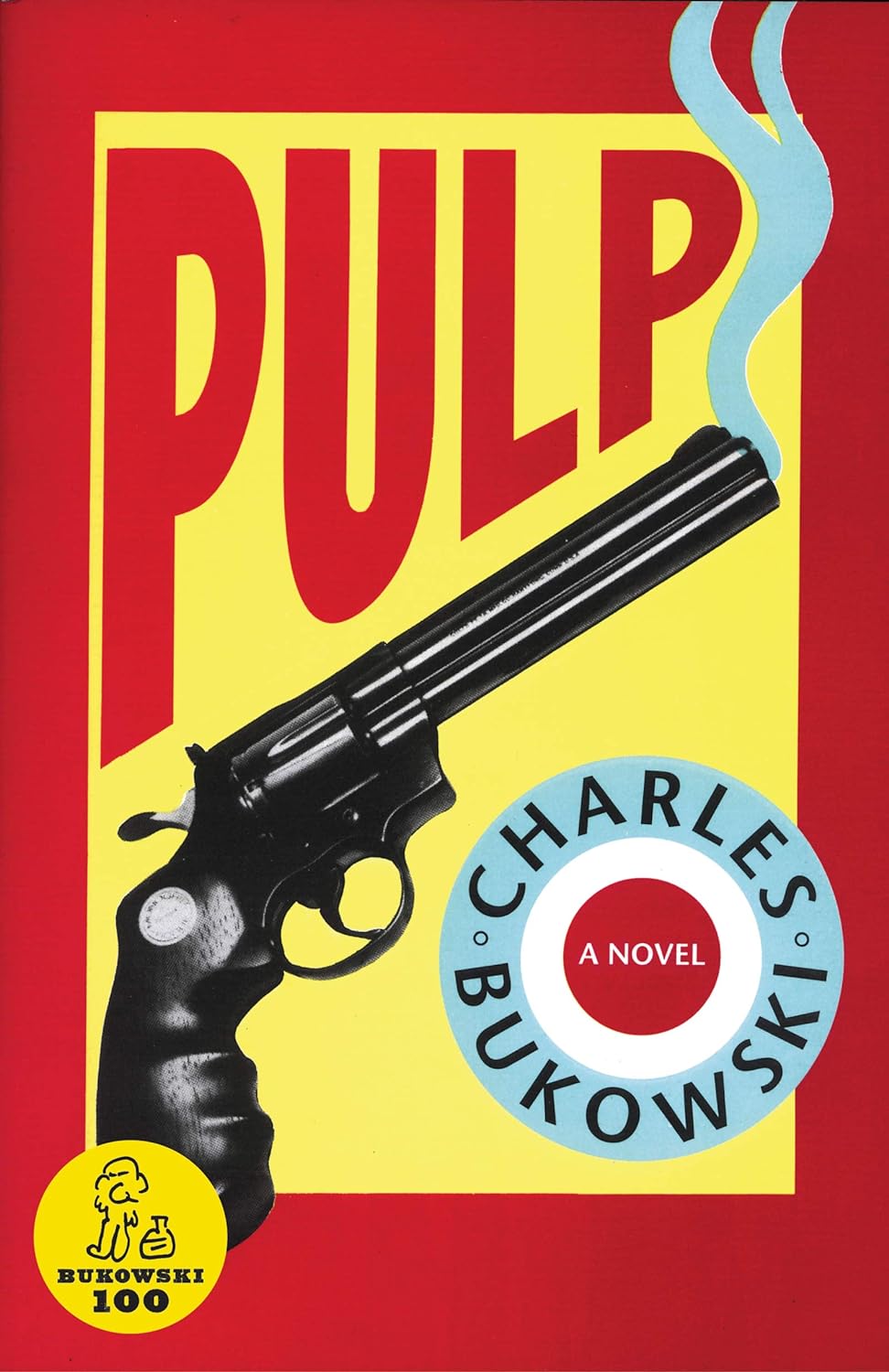
Pulp
Bukowski’s Henry Chinaski is an alter ego of his own self, but much more over-the-top, doing absurd antics. He wished to create a sort of pulpy identity for his own exploits and he ended up doing this so wonderfully.
In Pulp—his only work not featuring Chinaski, HE GOES EVEN PULPIER. Pulp is a classic example of so bad it is almost good literature.
In Pulp, Chinaski is absent, and taking his place instead is Nicky Belane—a down and out private eye whose detective agency is not really profiting, or actually hasn’t had a customer in many months. Belane has rent to pay, people to avoid, and then one day a case finally shows up. He takes it and then there’s whiskey, gambling, even ALIENS. Sometime in the middle of the narrative Belane finds Louis Ferdinand Celine (Bukowski’s favorite writer) and seeks out to search for him.
The true identity of Celine remains a mystery throughout the novel, with Belane constantly saying that Celine died years ago from the first chapter of the book. Funnily meta, Pulp is Bukowski’s big bad final joke to his readers. He gives them as his final farewell, just months before his death a novel so bad that it is good. That Pulp received widespread acclaim upon Bukowski’s death is a true testament that pulp fiction ultimately sells.
Bukowski dedicated this to bad writing.

Hollywood
Bad taste makes more millionaires than good taste.
Charles Bukowski chronicles in the most matures of all his work, his times as a successful writer trying to write a movie script that ended up being filmed as Barfly. Hollywood shows a more toned-down Bukowski as if he had learnt his lesson.
The misanthropy is still there but now subdued, so is the gambling and the drinking. He has turned from a loser into a bigshot, this is Bukowski’s true story of writing screenplay for the Hollywood.
Pick up a book or two by Charles Bukowski from any Kunzum store or WhatsApp +91.8800200280 to order. Buy the book(s) and the coffee’s on us.
